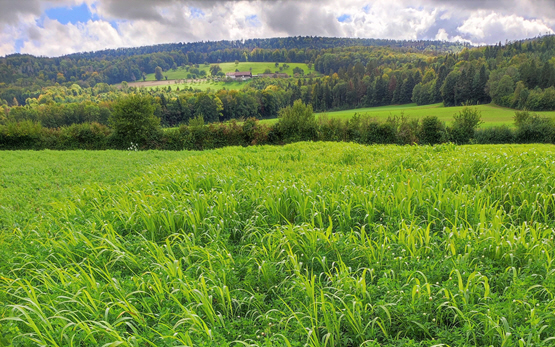Grasslands are at the heart of forage production worldwide and are severely threatened by climate change, which can strongly reduce grassland productivity. Although climate change is happening on a global scale, not every part of the world is affected in the same way. Understanding the local and regional effects of climate change on grassland ecosystems is therefore crucial so that management practices can be adapted accordingly and sufficient forage production can be ensured.
Objectives of the project
The objective of the SPAD project (Systèmes de Production Agricole Durables - Interreg France-Switzerland Project No. 6125, 2020-2022) is to increase sustainability and adapt food production systems to climate change in the French Departments of Doubs, Territoire de Belfort, Haute-Saône and Jura, as well as in the Swiss cantons of Jura and Bernese Jura.
Summer forage catch crops
Based on local climate scenarios, the sustainability and environmental impacts of farms were determined and climate change adaptation practices were also tested. Specifically, six summer forage catch crops were sown in the Canton of Jura over two years (2021 and 2022) that were characterised by contrasting climatic conditions. The catch crops were compared in terms of drought resistance with regard to biomass production and forage quality. The multi-cut forage sorghum/Egyptian clover/Persian clover mixture provided the most promising results in terms of yield, biomass production stability and forage quality.






